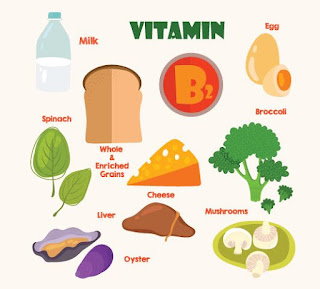Vitamins and minerals are essential nutrients that the body needs to function properly. They play a crucial role in maintaining good health and preventing various diseases. While the body can produce some vitamins and minerals on its own, others must be obtained through diet or supplements. In this article, we will discuss the sources of vitamins and minerals and their importance in the body.
Vitamins:
Vitamins are organic compounds that are required in small amounts for various metabolic processes in the body. They are classified into two categories, water-soluble and fat-soluble vitamins.
Water-soluble vitamins are not stored in the body, so they need to be replenished daily. These vitamins include vitamin C and the B-complex vitamins (thiamin, riboflavin, niacin, pantothenic acid, pyridoxine, biotin, folate, and cobalamin). Good sources of water-soluble vitamins include fruits, vegetables, whole grains, dairy products, and lean meats.
Fat-soluble vitamins are stored in the body's fat tissues and liver, so they don't need to be replenished as often. These vitamins include vitamin A, D, E, and K. Good sources of fat-soluble vitamins include dairy products, eggs, fatty fish, liver, and dark leafy greens.
Minerals:
Minerals are inorganic compounds that are essential for the body to function properly. They are divided into two categories, major minerals and trace minerals.
Major minerals are required in larger amounts by the body, and include calcium, phosphorus, potassium, sulfur, sodium, chloride, and magnesium. Good sources of major minerals include dairy products, leafy greens, nuts, whole grains, and lean meats.
Trace minerals are required in smaller amounts by the body, and include iron, zinc, copper, manganese, iodine, selenium, and fluoride. Good sources of trace minerals include seafood, nuts, legumes, whole grains, and dark leafy greens.
Importance of Vitamins and Minerals:
Vitamins and minerals play a vital role in the body's overall health and wellbeing. They help to regulate various bodily functions, including metabolism, growth and development, immune function, and energy production. Deficiencies in vitamins and minerals can lead to a wide range of health problems, including fatigue, anemia, weakened immune system, and even death in severe cases.
 |
Conclusion:
In conclusion, vitamins and minerals are essential nutrients that the body needs to function properly. While the body can produce some vitamins and minerals, others must be obtained through diet or supplements. A well-balanced diet that includes a variety of fruits, vegetables, whole grains, dairy products, and lean meats can help to ensure that you are getting all of the vitamins and minerals that your body needs. If you are concerned about your vitamin and mineral intake, talk to your doctor or a registered dietitian for guidance.
